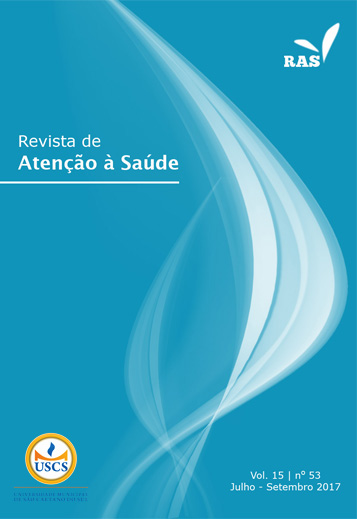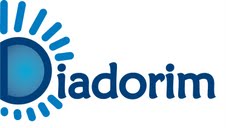NURSING TEAM COPING IN CARE OF PSYCHOTIC PATIENTS
DOI:
https://doi.org/10.13037/ras.vol15n53.4598Keywords:
Psychotic episode, psychiatric emergency, nursingAbstract
Introduction: A study focused on psychiatric emergency care in general hospitals. Objective: Aiming at characterizing coping mechanisms of a nursing team regarding emergency care of patients in psychotic episodes in a hospital in the municipality of Contenda (Paraná, Brazil). Methods: A quantitative, qualitative, descriptive, and cross-sectional field study was performed with 20 participants of the nursing team who work directly with patients in psychotic episode in the institution’s emergency room. Results: Auxiliary nurses of the female gender predominated, with a mean age of 40 years old, with a 12-year-old working time, and an average of 8 years in the institution. Lack of skill and insecurity in the context of psychotic episode emergency stand out, in individual or group care. The participants emphasize the importance of continuing education, related to the lack of literature on the subject and absence of courses or training. Conclusion: The necessity of continuous education has become evident to create conditions for psychiatric emergency care and stimulate the interest of professionals in this subject, making them aware and encouraging a humanized care to the patient with mental disorder.
Downloads
References
Quevedo J, Carvalho AF. Emergências Psiquiátricas. 3ª ed. Porto Alegre: Artmed; 2014. 336p.
Santa Catarina. Urgências e emergências psiquiátricas em pronto-socorro: protocolo de acolhimento e regulação. Florianópolis: Governo do Estado de Santa Catarina; 2015.
Brasil. Ministério da Saúde. Portaria nº 3.088, de 23 de dezembro de 2011. Institui a Rede de Atenção Psicossocial para pessoas com sofrimento ou transtorno mental e com necessidades decorrentes do uso de crack, álcool e outras drogas, no âmbito do Sistema Único de Saúde (SUS) [Internet]. Diário Oficial da União. Brasília, DF; 26 dez 2011 [citado em 2016 mar 17]. Seção 1, p 230. Disponível em: https://goo.gl/bi9LqJ
Brasil. Decreto nº 7.508, de 28 de junho de 2011. Regulamenta a Lei nº 8.080, de 19 de setembro de 1990, para dispor sobre a organização do Sistema Único de Saúde – SUS, o planejamento da saúde, a assistência à saúde e a articulação interfederativa, e dá outras providências [Internet]. Diário Oficial da União. Brasília, DF; 29 jun 2011 [citado em 2016 mar 17]. Seção 1, p. 1. Disponível em: https://goo.gl/x1U24Q.
Vieira A, Moreira JI, Loureiro K, Morgadinho R. Esquizofrenia e outras perturbações psicóticas. O Portal dos Psicólogos [Internet]. 2010 [citado em 2017 set 26]. Disponível em: https://goo.gl/FrEkvV
Sucar DD, Sougey EB, Neto JB. Surto psicótico pela possível interação medicamentosa de sibutramina com finasterida. Rev Bras Psiquiatr. 2002;24(1):30-3.
American Psychiatric Association. Manual diagnóstico e estatístico de transtornos mentais: DSM-5. 5ª ed. Porto Alegre: Artmed; 2014. 948p.
Toy EC, Klamen D. Casos clínicos em psiquiatria. 4ª ed. Porto Alegre: AMGH; 2014. 496p.
Sanches M, Uchida RR, Tamai S. Manejo do paciente psiquiátrico grave. São Paulo: Roca, 2009. 176p.
Carvalho MB, Santos AML. Emergências Psiquiátricas. In: Carvalho MB, organizadora. Psiquiatria para a enfermagem. São Paulo: Rideel; 2012. p. 279-92.
Organização Mundial da Saúde. CID-10: classificação estatística internacional de doenças e problemas relacionados à saúde [Internet]. 10ª rev. Versão 2008 [citado em 2017 set 26]. v. 1. Disponível em: https://goo.gl/JWRHFh
Schlindwein-Zanini R. Demência no idoso: aspectos neuropsicológicos. Rev Neurocienc. 2010;18(2):220-6.
Pereira LSM, Soares SM. Fatores que influenciam a qualidade de vida do cuidador familiar do idoso com demência. Ciênc Saúde Coletiva. 2015;20(12):3839-51.
Brasil. Conselho Nacional de Saúde. Resolução nº 466, de 12 de dezembro de 2012. Aprova diretrizes e normas regulamentadoras de pesquisas envolvendo seres humanos. Diário Oficial da União. Brasília, DF; n. 12, 13 jun 2013. Seção 1, p. 59.
Bardin L. Análise de conteúdo. São Paulo: Edições 70; 2011. 280p.
Ikuta CY, Santos MA, Badagnan HF, Donato ECSG, Zanetti ACG. Conhecimento dos profissionais de enfermagem em situações de emergência psiquiátrica: revisão integrativa. Rev Eletr Enf. 2013;15(4):1034-42.
Kondo EH, Vilella JC, Borba LO, Paes MR, Maftum MA. Abordagem da equipe de enfermagem ao usuário na emergência em saúde mental em um pronto atendimento. Rev Esc Enferm USP. 2011;45(2):501-7.
Caveião C, Hey AP, Montezeli JH, Sales WB, Visentin A, Kaled M. Portador de transtorno mental em situação de emergência: dificuldades de atendimento percebidas pela equipe de enfermagem em uma unidade mista. Cad Esc Saúde. 2015;2(14):21-31.
Tavares CMM, Muniz MP, Elias ADS, Souza MT. Atenção de enfermagem à família do portador de transtorno mental: contribuições para educação permanente. Ciênc Cuid Saúde. 2012;11(4):767-74.
Silva HHS, Silva PMC, Azevedo EB, Rocha DC, Costa LFP, Musse JO. Intervenção de enfermagem ao paciente em crise psiquiátrica nos centros de atenção psicossocial. Cogitare Enferm. 2012;17(3):464-70.
Lima ICS, Guimarães AB. Perfil das emergências psiquiátricas atendidas em serviços de urgência e emergência hospitalar. R Interd. 2015;8(2):181-90.
Santos ACT, Nascimento YCML, Lucena TS, Rodrigues PMS, Brêda MZ, Santos GF. Mobile service attendance of urgency to psychiatric urgencies and emergencies. J Nurs UFPE online. 2014;8(6):1586-96.
Borges CA, Vasconcelos CR, Oselame GB, Dutra DA. O novo perfil profissional do enfermeiro frente ao centro de atenção psicossocial. Rev Med Saúde Brasília. 2016;5(2):217-233.
Ferreira WFS, Oliveira EC, Vasconcelos CR, Dutra DA. Direitos humanos da pessoa idosa portadora de esquizofrenia: uma contribuição da enfermagem. Rev Saúde Desenvol. 2017;11(6):219-229.
Barbosa MC, Vasconcelos CR, Oselame GB. A percepção do acadêmico de enfermagem sobre a loucura. Rev Enferm Atenção Saúde. 2016;5(2):3-17.
Downloads
Published
Issue
Section
License
Policy Proposal for Journals offering Free Delayed Access
Authors who publish in this magazine agree to the following terms:
- Authors maintain the copyright and grant the journal the right to the first publication, with the work simultaneously licensed under a Creative Commons Attribution License after publication, allowing the sharing of the work with recognition of the authorship of the work and initial publication in this journal.
- Authors are authorized to assume additional contracts separately, for non-exclusive distribution of the version of the work published in this magazine (eg, publishing in institutional repository or as a book chapter), with the acknowledgment of the authorship and initial publication in this journal.
- Authors are allowed and encouraged to publish and distribute their work online (eg in institutional repositories or on their personal page) at any point before or during the editorial process, as this can generate productive changes, as well as increase impact and citation of the published work (See The Effect of Open Access).









